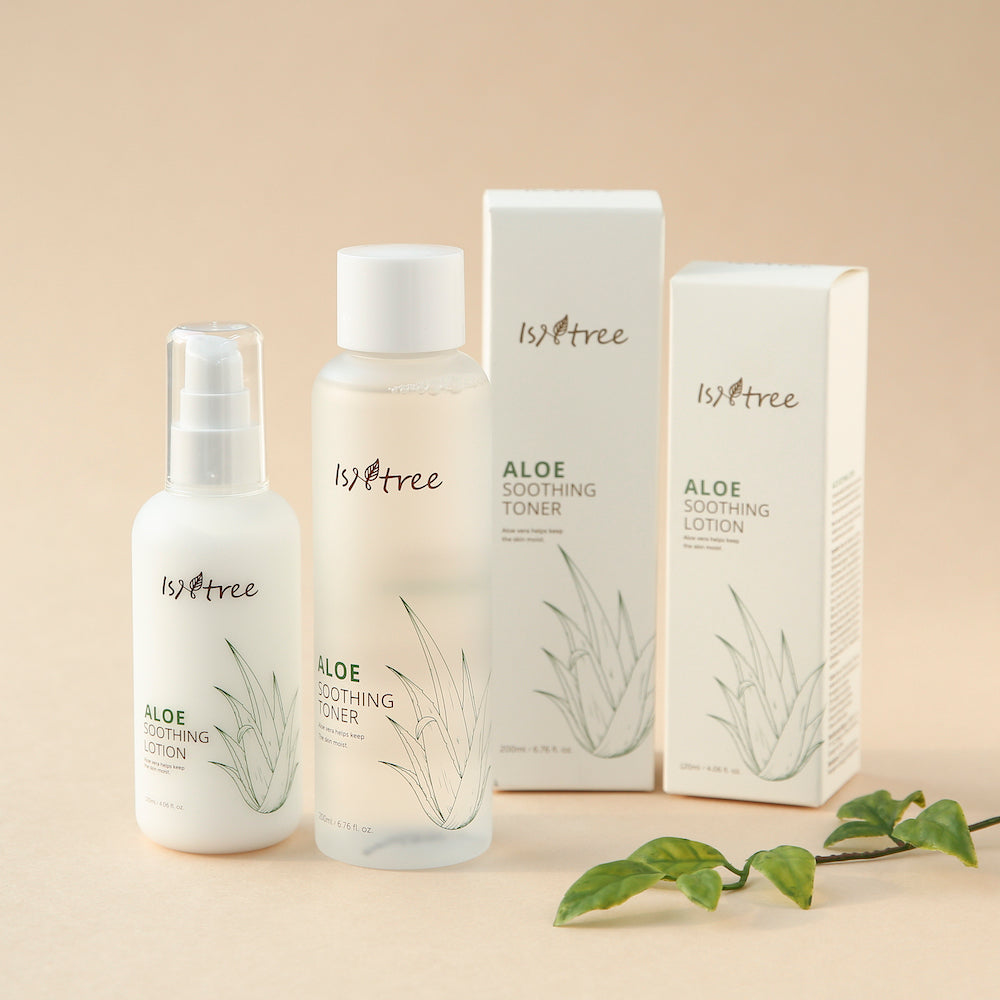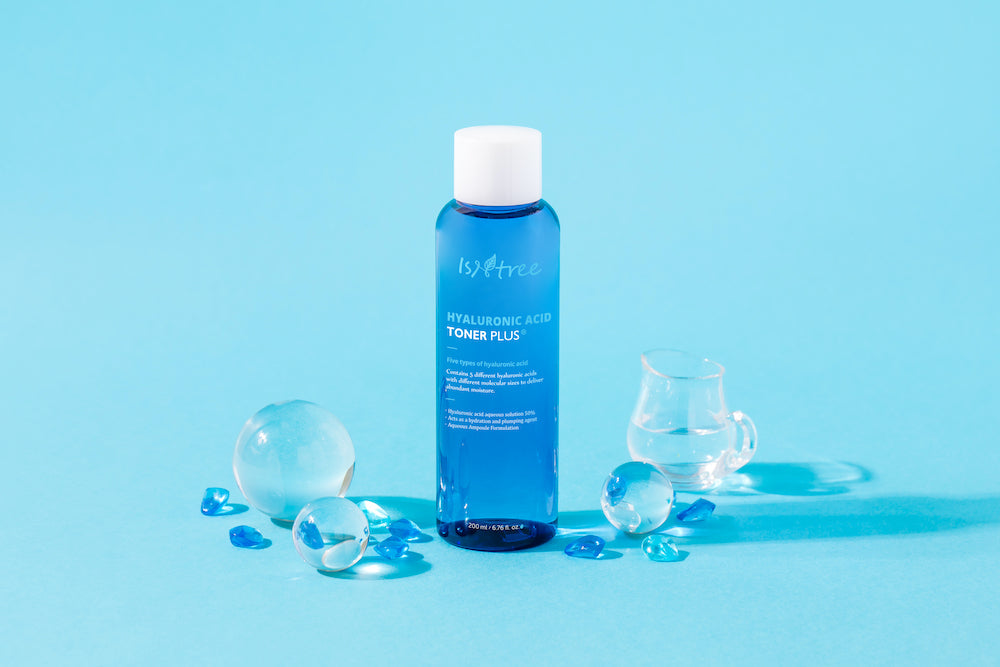These are the Trends in K-Beauty this Summer
GLOWSOME TIMES
Like most cultural phenomena, K-beauty is constantly changing; what was hugely popular last year may not be as noticeable this year. And it is that Koreans are experts when it comes to skin care trends.
While 2021 has seen the minting of a host of buzzwords and beauty terms, in the ever-changing world of skincare, there is always room for a new trend.
These are the hottest skincare trends this summer that you can't miss!
Mirror Skin
This is perhaps the most fashionable technique this 2021. It is a technique that requires the application of layers of serums, essences and moisturizing tonics that results in a skin with the maximum luminosity and intense translucency that when you look at your face, you can see your own reflection, like a mirror!
At Glowsome we give you the following tips to achieve a Mirror skin at home!
More layers of fine textures
Layering hydration with hydrant-rich serums are the foundation for glowing skin. The application of layers of serums, either acidic or another variety of serums will also help to combat the particular problems of your skin.
To correctly apply the products, it is necessary to apply layers from the thinnest to the thickest. For example, the use of a vitamin C serum to brighten, followed by a hyaluronic acid that will provide hydration. (A good rule of thumb is that hyaluronic acid comes after all other serums as it is thicker)
It is extremely important that the ingredients in your serums are gentle as high concentrations of serums are being applied to the skin. Therefore, the ingredients in each layer's serums must be compatible with each other.
Hanbang
The term Hanbang refers to ancient Korean traditional medicine, which includes various herbal ingredients to balance the mind and body for total well-being.
The ingredients in Hanbang are made from traditional herbs that have long been a staple in skin and body care thanks to their anti-aging, anti-inflammatory and regenerative properties. Thus creating a perfect harmony between internal and external health.
Many K-Beauty products contain herbal ingredients such as ginseng, mugwort, ginger, licorice, and honeysuckle extracts. However, although these are considered traditional ingredients, what really constitutes Hanbang is the treatment of the herbs.
Hanbang focuses on specific blends of various herbs, often inspired in a traditional way using traditional aging or fermentation methods.
But how do we know if what we buy is Hanbang? Easy, the packaging will tell. Typically, traditional formulas and more elaborate preparation methods can be more expensive. However, they also increase the prestige of the brand, which is why Hanbang brands tend to occupy a prominent place in the K-Beauty market.
Mushrooms
Mushrooms are not exactly a new ingredient, they have been used for a long time in traditional Asian medicine for their ability to improve health, maintain vitality, and help preserve a young and healthy appearance. However, mushrooms have given much to talk about in recent years, becoming one of the most prominent ingredients as many people are finding them in beauty products for the first time.
As time goes on and interest in herbal skincare continues to grow, so will the study of these botanicals. Currently, there are seven mushrooms most commonly associated with beauty and wellness: chaga, reishi, shiitake, tremella, trametes versicolor, cordyceps, and coprinus. Each one presents its own unique benefits.
We highlight ingredients like kojic acid in shiitake to replace hydroquinone that helps fight hyperpigmentation, or Snow Mushroom instead of hyaluronic acid for moisture retention.
Fermented Ingredients
Within the latest trends, we have seen that Kombucha has been positioning itself stronger and stronger in the market.
Kombucha is a fermented tea. It is a combined yeast and bacteria fermentation that is then generally used as a delicious drink that helps support a healthy gut.
Kombucha in skin care helps fight acne, rosacea, eczema, and other conditions related to digestive problems that materialize on our skin.
Kombucha also contains a host of B vitamins, including B2, B6, and B12 that are often found in products that are effective for a radiant complexion. Therefore, Kombucha will absolutely benefit your skin from the inside out.
Probiotics
Probiotics can do more than support a healthy gut! When used in skin care, they result in restorative and pH balancing effects. These act as a skin barrier for natural bacteria that make the skin healthier and stronger. This makes products with probiotics as ingredients excellent for fighting dryness, irritation and inflammation, and damage caused by exposure to free radicals.
Thanks to the benefits found in probiotics, we now have a wide variety of new moisturizers, serums, cleansers, toners, eye creams and masks enriched with probiotics.
It is noteworthy that the best probiotic skin care products combine probiotics and prebiotics with powerful ingredients such as vitamin C, hyaluronic acid, glycolic acid, tea tree oil, and many more, allowing them to act as powerful anti-aging agents and treatments to eliminate acne and increase shine.
Superfood
We are what we eat. However, even if we eat healthy, the skin is usually the last in line to receive the benefits of the nutrients it ingests. And this is where skin care comes in.
Instead of consuming superfoods like avocado or kale that are packed with antioxidants, why not try applying them in skincare form?
The main function of these ingredients is to protect the skin from harmful free radicals. These cause collagen breakdown, leading to dull and sagging skin, wrinkles and inflammation of the skin, or pigmentation problems.
Celery, for example, has long been celebrated for its health benefits, and its implementation in skin care products has been causing a sensation for its incredible benefits: It contains vitamin C and vitamin K, which are healthy antioxidants for the skin. It is also hydrating, as it has a high water content and also minimizes the appearance of pores and softens the complexion.
Blueberries are another antioxidant-rich superfood and can help with discoloration. Vitamins A, C, and E protect our skin from environmental stress and help minimize the appearance of sun spots, pigmentation, acne, psoriasis, and eczema.
Finally, there is kale, also known as the mother of all vegetables. This cabbage is rich in vitamins A, C and K, which help to create a difference in the brightness and radiance of the skin. Additionally, the nutrients present help combat thin, pigmented skin, which is a common problem as we age.
Retinol
Retinol is a derivative of vitamin A that helps eliminate acne breakouts, evens out skin tone and texture, stimulates collagen, and minimizes age spots and wrinkles. It is also the only drug with scientifically proven anti-aging properties.
Retinol is notoriously difficult for people with sensitive or easily irritated skin to tolerate. Although retinol is extremely effective, its improper use can cause skin problems, so it is important to keep two key points in mind: If it is the first time you implement it in your routine, it is better to start with serums instead of creams. However, to avoid the risk of irritation or redness, it is important to use products with a low percentage of at least 0.05% and increase as our skin adapts.
It is important not to mix with other strong ingredients such as Vitamin C as it will increase the risk of redness, peeling and dryness. You can also consult your dermatologist before adding retinol to your skincare routine.



